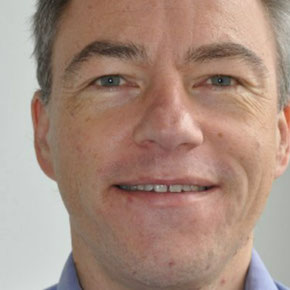Tutorial: 11:45-13:15 (English)
Extending a Language - Writing Powerful Macros in Scheme
One of the defining properties of the functional programming language Scheme is the availability of a facility for writing hygienic macros. By employing this, a programmer can customize the language until it fits the posed problem perfectly. This customization can range from simple syntactic sugar to syntax for pattern matching to integrating domain-specific languages into Scheme - all without any runtime overhead.
However, many still consider writing macros for Scheme a black art. In this tutorial, we want to convince everyone of the contrary. We will start with writing simple macros, discuss what makes Scheme’s macro system elegant and powerful simultaneously, and finally come to the question of how to implement complex embedded sublanguages - without ever leaving our Scheme system.
We learn what the current R6RS and R7RS dialects bring to the table and discuss ongoing developments, expanding the scope of syntactic abstraction. We see what distinguishes Scheme macros from macros or templates in most other languages and how programming can benefit from syntactic abstraction.
The tutorial does not assume knowledge of Scheme, only that you are not allergic to parentheses. Good general programming skills, which include essential experience with functional programming, are helpful, though.
Preparation
Course materials will appear in this GitHub repository: https://github.com/mnieper/scheme-macros
Participants benefit from installing Chez Scheme and a good editor for Scheme such as GNU Emacs on their machines.
An excellent introduction to Scheme is The Scheme Programming Language.
Marc Nieper-Wißkirchen
Marc Nieper-Wißkirchen holds the Algebra and Number Theory Chair at the University of Augsburg. He regularly uses functional and declarative programming to solve algorithmic problems in his research. He teaches students the basics of programming and mathematical algorithms using the programming language Scheme. Among other things, his working group is concerned with category theory and constructive mathematics.
Born in 1975 in Eckernförde and growing up in Flensburg, he gradually moved his center of life towards the south of Germany. After studying physics and mathematics at the University of Cologne and after a postdoc year in Cambridge, England, he became a junior professor in Mainz before settling with his family in Augsburg, where he has been living since 2008.
Programming has always been a pet issue for him. He enjoys the close connections between algebra, functional programming, and type theories, which has led to more than one supervision of a thesis between mathematics and computer science. Since 2016, he has become an active member of the Scheme community, authoring 30 Scheme Requests for Implementation. He is a member of the Scheme Working Group 2, whose goal is to standardize the next language revision. He sees his role in ensuring that Scheme stays the jewel it is and in healing the split that was caused by R7RS-small’s disregard for the previous standard. He would consider himself an expert in Scheme macrology.
